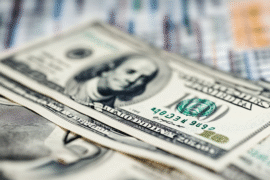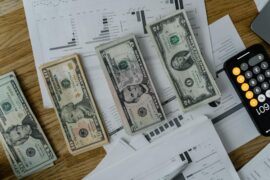This article may contain references to products or services from one or more of our advertisers or partners. We may receive compensation when you click on links to those products or services. Nonetheless, our opinions are our own.
Understanding the Characteristics of Economic Bubbles
Economic bubbles are characterized by a rapid increase in the price of a particular asset, often far exceeding its intrinsic value. This surge is fueled by a collective optimism and a fear of missing out (FOMO) mentality among investors. As prices skyrocket, more and more people jump on the bandwagon, further inflating the bubble. However, it’s important to note that these price increases are unsustainable in the long run.
One key characteristic of economic bubbles is the detachment from fundamental market factors. In a bubble, prices are driven by speculation rather than the economic realities of supply and demand. This divergence becomes increasingly evident as the bubble grows larger.
The Role of Speculation in Fueling Economic Bubbles
Speculation plays a pivotal role in the formation of economic bubbles. It is the driving force behind the rapid price increases that inflate the bubble to unsustainable levels. Speculators are individuals who buy assets purely with the goal of selling them at a higher price in the future, without considering the intrinsic value or underlying fundamentals of the asset.
One of the main reasons speculation thrives during bubble periods is the presence of irrational exuberance. Investors become caught up in the excitement and overlook the potential risks associated with the asset they are buying. This irrationality acts as a feedback loop, further fueling the bubble.
It is crucial for investors to distinguish between rational investment decisions and speculative gambling. By conducting thorough research and analyzing the fundamental factors driving an asset’s value, one can avoid falling victim to irrational exuberance and the dangerous allure of speculation.
Identifying Warning Signs of an Economic Bubble
Recognizing the warning signs of an economic bubble can save investors from severe financial losses. Here are some red flags to be aware of:
- Unjustifiable price increases: If the price of an asset is rising rapidly without any significant change in underlying factors such as demand or utility, it could be a sign of a bubble.
- Widespread optimism and FOMO: When everyone around you, from friends to colleagues, is talking about a particular investment and urging you to join in, it’s time to exercise caution. Mass enthusiasm often precedes a bubble.
- Excessive leverage and borrowing: Bubbles are often fueled by excessive borrowing and leverage. It’s important to keep an eye on the level of debt in the market as it can increase vulnerability to a sharp asset price correction.
Remember, it’s vital to resist the temptation to jump on the bandwagon simply because everyone else is doing so. A well-informed investor always keeps a keen eye out for warning signs and makes decisions based on careful analysis.
Historical Examples of Economic Bubbles
History is replete with examples of economic bubbles that have wreaked havoc on economies and individuals alike. Let’s take a brief look at a couple of notable instances that serve as valuable lessons:
The Dotcom Bubble (1997-2000): During the late 1990s, the rise of the internet led to a frenzy of investment in internet-based companies. Stock values soared as investors saw limitless potential in the rapidly evolving digital landscape. However, many of these dotcom companies were unprofitable and lacked sound business models. When the bubble burst in 2000, billions of dollars were wiped away, leaving countless investors with empty portfolios.
The Housing Bubble (2006-2008): The housing bubble of the mid-2000s was fueled by loose lending practices and a belief that the housing market would continue to rise indefinitely. Many people bought homes they couldn’t afford, fueled by speculation that property prices would only go up. When the bubble burst, it triggered a global financial crisis that sent shockwaves through the economy, resulting in foreclosures, bankruptcies, and a deep recession.
The Crypto Bubble: The question on many people’s minds is whether we are currently experiencing a crypto bubble. Cryptocurrencies, such as Bitcoin, have seen tremendous price increases in recent years, capturing the attention of investors worldwide. As an expert, my opinion is that while there is undoubtedly massive potential in blockchain technology, the rapid price fluctuations and hype surrounding cryptocurrencies are reminiscent of past bubbles.
It’s important to approach the crypto market with a level-headed mindset and conduct thorough research before making any investment decisions. Understanding the technology, the fundamentals of the specific cryptocurrency, and the market dynamics will help you navigate through the noise and make informed choices.
Let’s recap the main points covered in this guide:
- Economic bubbles are characterized by a rapid increase in the price of an asset, detached from its intrinsic value.
- Speculation plays a pivotal role in fueling economic bubbles, often driven by irrational exuberance.
- Recognizing warning signs, such as unjustifiable price increases, widespread optimism, and excessive leverage, can help identify economic bubbles.
- Historical examples, like the Dotcom Bubble and the Housing Bubble, underline the consequences of ignoring warning signs and blindly participating in a bubble.
- Cryptocurrencies, while holding potential, exhibit characteristics reminiscent of past bubbles, requiring caution and thorough research before investing.

Reviewed and edited by Albert Fang.
See a typo or want to suggest an edit/revision to the content? Use the contact us form to provide feedback.
At FangWallet, we value editorial integrity and open collaboration in curating quality content for readers to enjoy. Much appreciated for the assist.
Did you like our article and find it insightful? We encourage sharing the article link with family and friends to benefit as well - better yet, sharing on social media. Thank you for the support! 🍉
Article Title: A Guide for Identifying Economic Bubbles
https://fangwallet.com/2024/02/26/a-guide-for-identifying-economic-bubbles/The FangWallet Promise
FangWallet is an editorially independent resource - founded on breaking down challenging financial concepts for anyone to understand since 2014. While we adhere to editorial integrity, note that this post may contain references to products from our partners.
The FangWallet promise is always to have your best interest in mind and be transparent and honest about the financial picture.
Become an Insider

Subscribe to get a free daily budget planner printable to help get your money on track!
Make passive money the right way. No spam.
Editorial Disclaimer: The editorial content on this page is not provided by any of the companies mentioned. The opinions expressed here are the author's alone.
The content of this website is for informational purposes only and does not represent investment advice, or an offer or solicitation to buy or sell any security, investment, or product. Investors are encouraged to do their own due diligence, and, if necessary, consult professional advising before making any investment decisions. Investing involves a high degree of risk, and financial losses may occur including the potential loss of principal.
Source Citation References:
+ Inspo











































